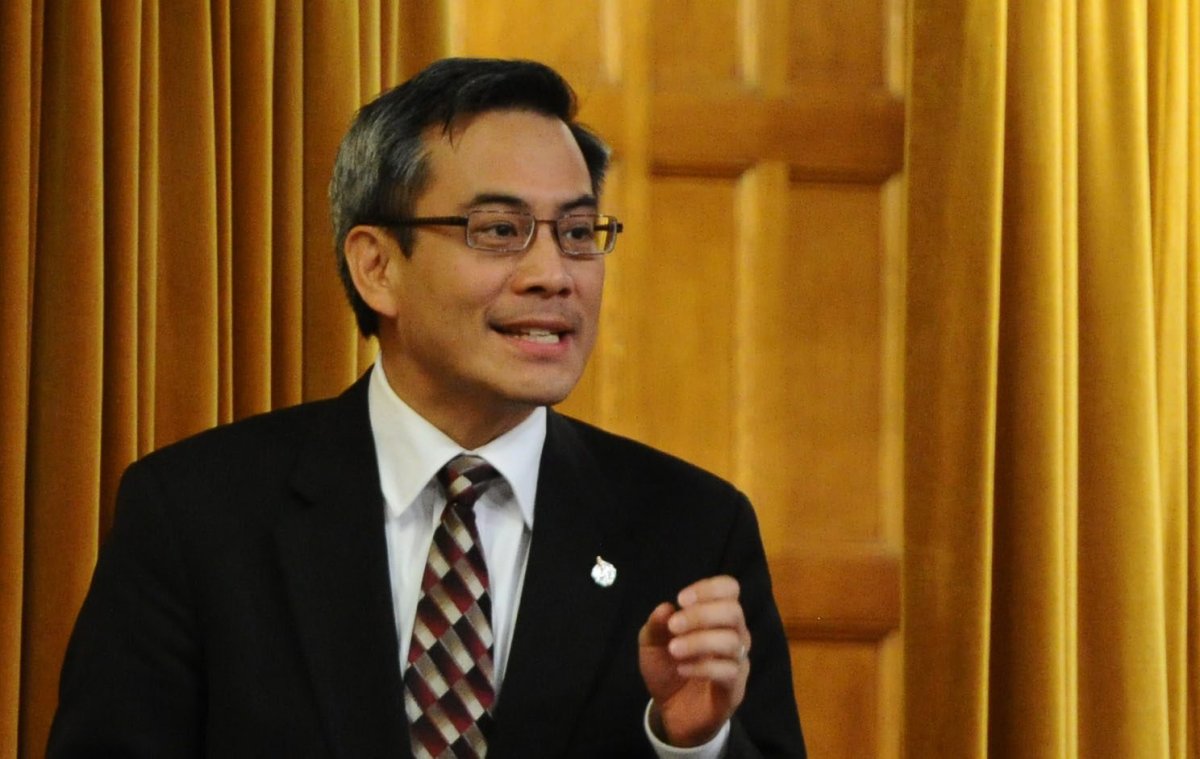Ted Hsu knows he doesn’t stand a chance.

His bill, that is: Parliament votes Wednesday evening on a proposed law he brought forward to reinstate the long-form census, or at least a close facsimile.
Even the statistical agency in charge of rolling out the National Household Survey that replaced the long-form census admits its results are of little good for comparisons or for local data. The people relying on this info – everyone from public health agencies to private businesses, governments, researchers, planners and NGOs – are struggling to come up with a reliable alternative and have for the most part come up empty.
READ MORE: How are Canadians coping sans long-form census?
Having the issue on the national agenda again has sent stats nerds into paroxysms of arguably false hope: To pass his bill, the Liberal MP for Kingston and the Islands would need the support of Liberals, New Democrats and many Tory backbenchers. He doesn’t have those numbers. While his lobbying’s earned him many “sympathizers” on the other side of the floor, he said, he has no commitments from Conservative members of Parliament.
Global News spoke with Hsu shortly before his bill goes to a vote Wednesday.
(He also noted 2015 is the 350th anniversary of Canada’s census. So Happy Anniversary, data nerds. And if you think being asked to fill out a form every 25 years is intrusive, imagine being doorknocked by Jean Talon in 1665.)
Why put this bill forward? Are you a masochist normally?
Well I’ll give you two answers: It is very important – it’s more than just a political football. I really do believe that as Canadians we should have good data, information about ourselves, so we can govern ourselves wisely.
I’ve worked in science and I’ve worked in finance. And I was a very, very heavy user of data. So I really believe in using data to figure out things. … It’s not about bigger or smarter government; it’s just about smarter government.
The other thing is that this long-form data is very good for businesses, as well. And for planning, and public health. … Knowing about ourselves allows us to make smarter decisions whether it comes to spending government money or making business investtents or managing public health or managing transportation.
Well public health people have decided not to use the NHS. They’re still using the 2006 data. So for some purposes the voluntary NHS data might be okay, and for other purposes it’s not. And we’ve heard a lot of researchers, business groups, economists speak up about the cases where it’s not sufficient.
Do you think the info in the NHS presents a skewed picture of Canada?
But people predicted the National Household Survey would be effectively useless, especially at the local level, and especially for longitudinal comparisons…
That’s right.
…in 2010.
Yes.
Why didn’t that make an impact then?
This government felt, I think, there was a certain libertarian streak among conservative supporters people feel very very strongly that the census is intrusive so they value their own privacy a lot and they don’t value having government to make smart decisions. So it’s a values thing: I think there’s a certain streak of Conservatives who really don’t want to be bothered with answering the census. And who really don’t care if the government has good, detailed or not.
Not only are we wasting more money by spending $22 million more on the voluntary survey but we’re wasting money if we don’t cut a bad program, if we don’t plan properly when we plan services and deliver them inefficiently.
But if we kind of knew this would happen in 2010 and it wasn’t enough to change anything politically, why do you think a bill that sort of makes similar findings would get better traction in the House?
Well I think it’s important to not give up. It is an election year. And I believe the right thing for the government to do is to support my bill, or they could just bring back the long-form census; they don’t need my bill. I think the right thing to do is to keep talking about the long-form census or just generally the government getting information, people accepting that it’s their duty to provide information so their government can be smarter.
It’s worth talking about that from now until election day, and trying to make it a minor election issue. I know it’s not going to be a big election issue. But it’s about how you see Canada.
How do you galvanize people around this? I tried to raise this over, I guess, Christmas break, and it was the perfect way to defuse otherwise contentious family conversations … because people don’t get excited about it. How do you get people who aren’t data nerds excited about that kind of thing?
I guess the way to do it is to tell them stories, like, ‘Oh, there’s this company that uses long-form census data,’ or ‘During the H1N1 scare, Toronto used census data to figure out how to roll out its vaccines to protect the most people as quickly as possible.’ You could say ‘Oh, in the province of New Brunswick, the Premier said it’s hard to track how much progress we’re making in our poverty program.’ So I think telling stories like that is a good way to get people’s attention.
What do you think will happen tonight, realistically?
Well, the right thing for the government to do, again, is just to reinstate the long-form census. … Honestly, my chances are low. And so I have no false hopes. But the right thing for the government and for any MPs to do is to vote for my bill.
This interview has been edited and condensed for clarity.




Comments